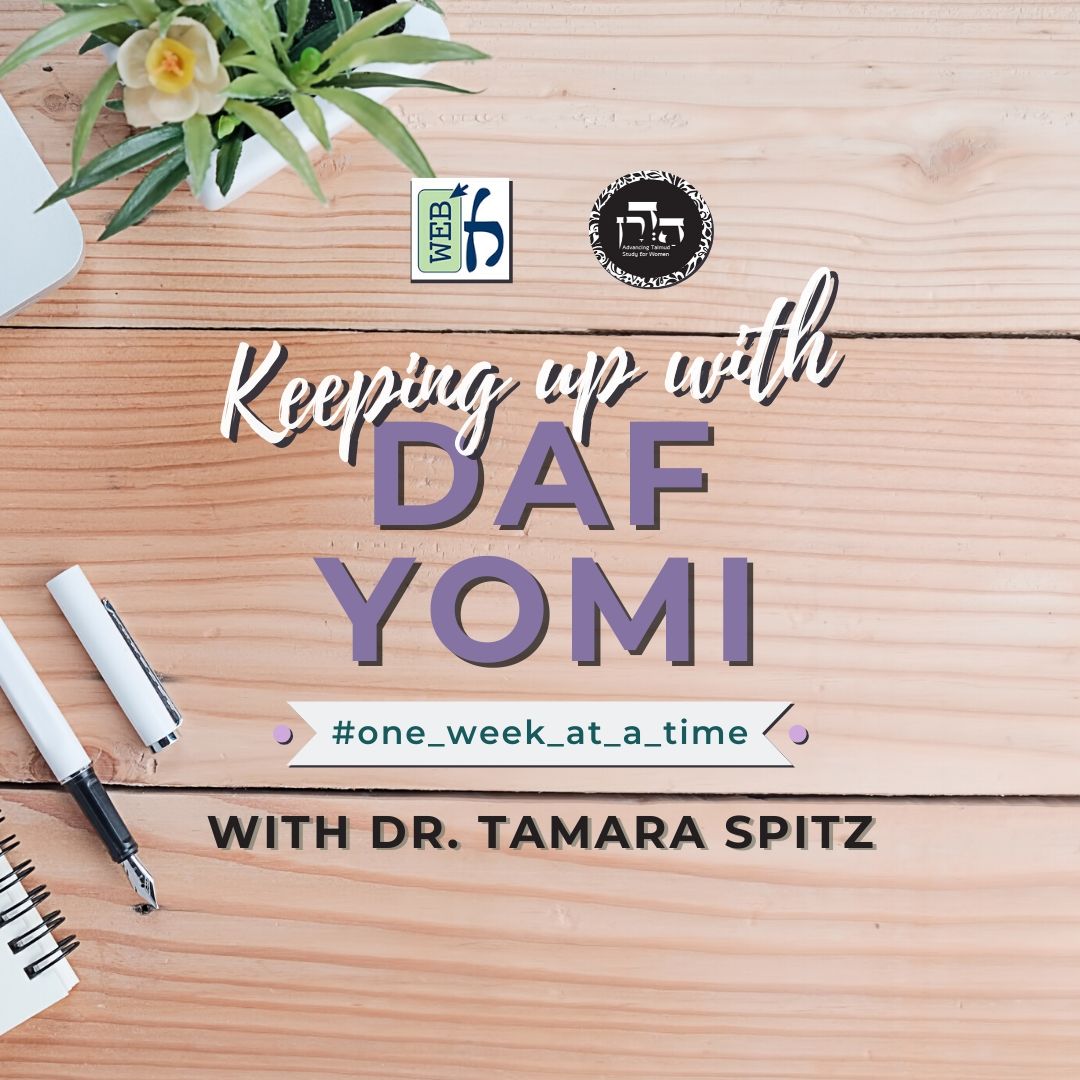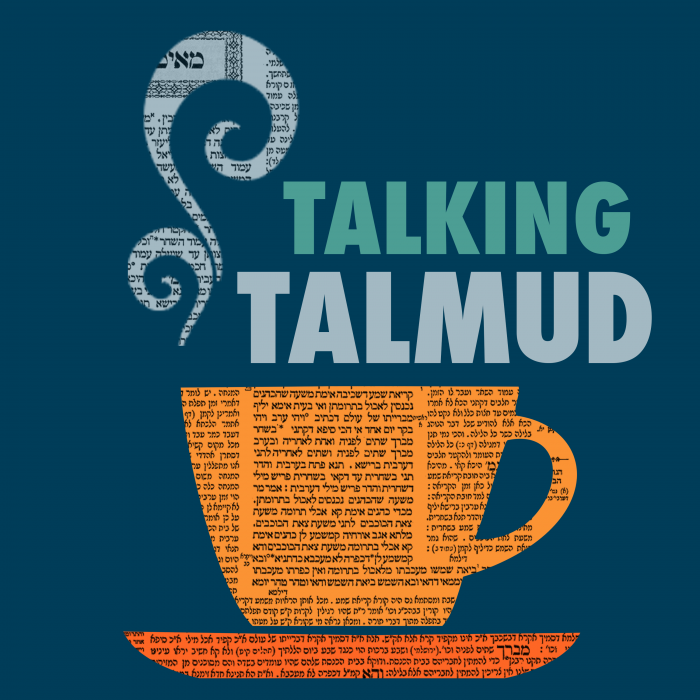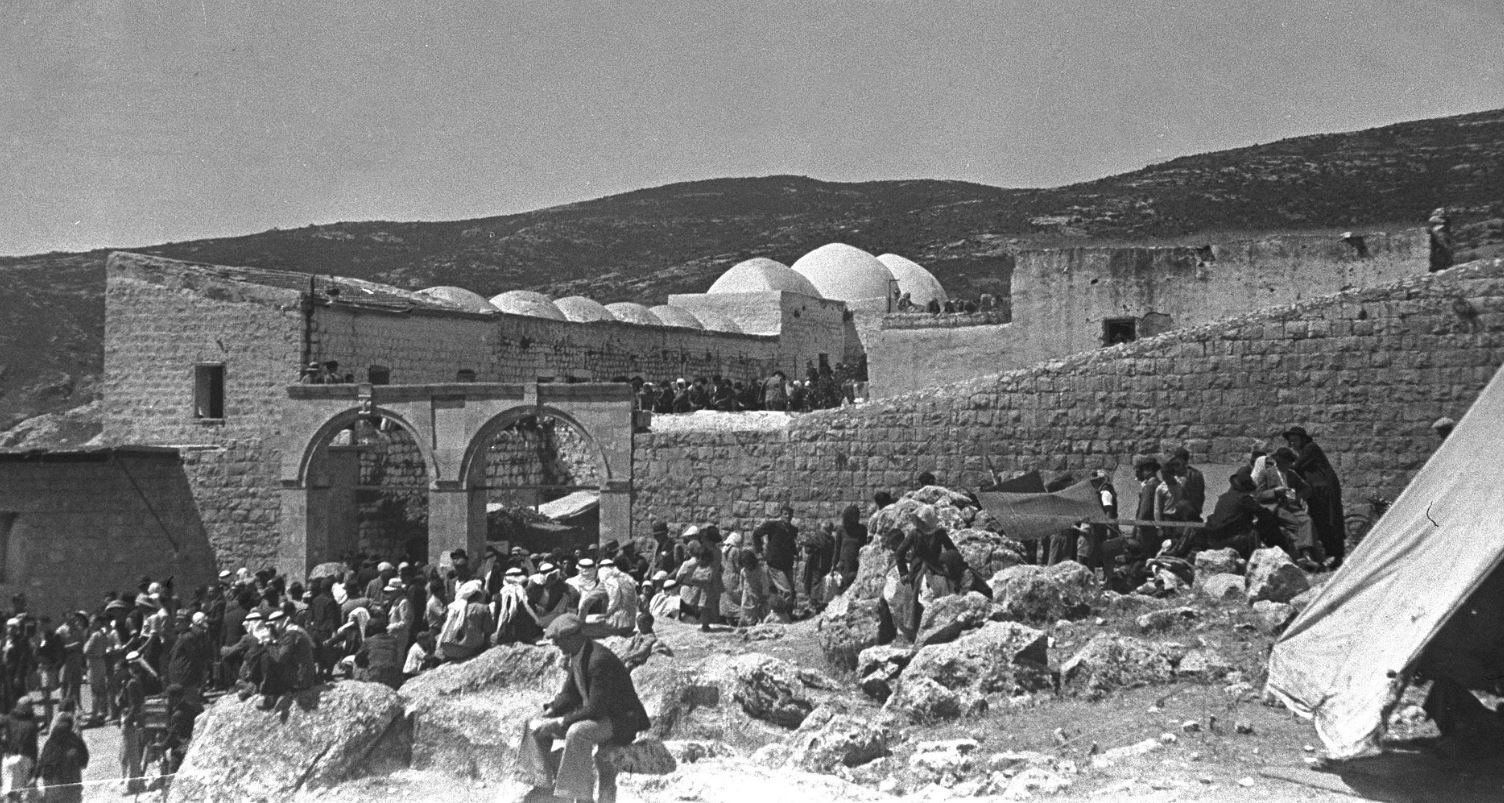Bava Batra 156
וּלְטַעְמָיךְ, זַבֵּין שָׁוֵי חַמְשָׁא – בְּשִׁיתָּא, הָכִי נָמֵי דִּזְבִינֵיהּ זְבִינֵי?!
And according to your reasoning, that the money he receives in exchange for the property is a reason one could consider his sale valid, if he sold property worth five dinars for six dinars, would his sale also be a valid sale?
אֶלָּא קִים לְהוּ לְרַבָּנַן דְּיָנוֹקָא מְקָרְבָא דַּעְתֵּיהּ גַּבֵּי זוּזֵי; וְאִי אָמְרַתְּ זְבִינֵיהּ זְבִינֵי, זִמְנִין דִּמְקַרְקְשִׁי לֵיהּ זוּזֵי, אָזֵיל מְזַבֵּין לְכוּלְּהוּ נִכְסֵי דַּאֲבוּהּ. אֲבָל גַּבֵּי מַתָּנָה, אִי לָאו דַּהֲוָה לֵיהּ הֲנָאָה מִינֵּיהּ – לָא הֲוָה יָהֵיב לֵיהּ מַתָּנָה; אֲמַרוּ רַבָּנַן: תֶּיהְוֵי מַתְּנָתוֹ מַתָּנָה, דְּלִעְבְּידוּ לְהוּ מִילֵּי.
Rather, the Sages maintain that a child’s inclination is to be attracted to money. And if you say that his sale is a valid sale, there may be times that there are potential buyers who rattle the dinars before him in order to tempt him to sell, and he will go and sell all of his father’s property. That is why the Sages ruled that all of his sales are not valid. But with regard to a gift, if he did not derive benefit from the recipient, he would not give him a gift. The Sages therefore said: Let the gift of an orphan be a valid gift, so that people will perform beneficial matters for the orphans, as the orphan can reciprocate by giving gifts.
אָמַר רַב נַחְמָן אָמַר שְׁמוּאֵל: בּוֹדְקִין לְקִדּוּשִׁין, לְגֵרוּשִׁין, וְלַחֲלִיצָה, וּלְמֵיאוּנִין. וְלִמְכּוֹר בְּנִכְסֵי אָבִיו – עַד שֶׁיְּהֵא בֶּן עֶשְׂרִים.
§ Rav Naḥman says that Shmuel says: Children who have reached the age of majority, i.e., a boy who is thirteen years old and a girl who is twelve years old, are examined for signs indicating puberty if it is necessary to determine their adulthood for the purpose of betrothal, for the purpose of divorce, for the purpose of ḥalitza, and for the purpose of stating a girl’s refusal to remain married. But in order to sell from the property that one inherited from his father, the seller must be older, and one cannot sell this property until the seller is twenty years old.
וְכֵיוָן דִּבְדַקְנָא לְקִדּוּשִׁין, לְגֵרוּשִׁין לְמָה לִי? לֹא נִצְרְכָא אֶלָּא לְיִבּוּם – דִּתְנַן: בֶּן תֵּשַׁע שָׁנִים וְיוֹם אֶחָד שֶׁבָּא עַל יְבִמְתּוֹ – קְנָאָהּ. וְאֵין נוֹתֵן גֵּט עַד שֶׁיִּגְדַּל.
The Gemara asks: But once I examined the boy for the purpose of betrothal, why do I need to examine him again for the purpose of divorce? The Gemara answers: This is necessary only with regard to the levirate marriage of a minor, as we learned in a mishna (Nidda 45a): A boy who is nine years and one day old who engaged in intercourse with his yevama, i.e., his brother’s widow, acquired her as his wife by means of engaging in the act of intercourse. Although a minor cannot betroth a woman under ordinary circumstances, in the case of levirate marriage the act of intercourse of a nine-year-old with his yevama effects acquisition. But he cannot give her a bill of divorce until he reaches his majority. It is therefore necessary to examine him at the time of the divorce.
לַחֲלִיצָה – לְאַפּוֹקֵי מִדְּרַבִּי יוֹסֵי, דְּאָמַר: ״אִישׁ״ כָּתוּב בַּפָּרָשָׁה, אֲבָל אִשָּׁה – בֵּין גְּדוֹלָה וּבֵין קְטַנָּה; קָא מַשְׁמַע לַן דְּמַקְּשִׁינַן אִשָּׁה לְאִישׁ, דְּלָא כְּרַבִּי יוֹסֵי.
The Gemara explains why it is necessary to mention examining a boy for the purpose of ḥalitza: This is mentioned to the exclusion of that which Rabbi Yosei says, as Rabbi Yosei says: “Man,” i.e., an adult man, is written in the Torah passage with regard to ḥalitza, as the verse states: “And if the man does not wish to take his brother’s wife” (Deuteronomy 25:7). But a woman, whether she is an adult or a minor, can be released by ḥalitza, as the verse does not indicate her age. To counter this, Rav Naḥman teaches us that a woman is juxtaposed to a man in this passage, indicating that the yevama must also have reached adulthood, and the halakha is not in accordance with the opinion of Rabbi Yosei.
וּלְמֵיאוּנִין – לְאַפּוֹקֵי מִדְּרַבִּי יְהוּדָה, דְּאָמַר: עַד שֶׁיִּרְבֶּה שָׁחוֹר; קָא מַשְׁמַע לַן דְּלָא כְּרַבִּי יְהוּדָה.
The Gemara explains why it is necessary to mention examining a person for the purpose of stating her refusal. This is mentioned to the exclusion of that which Rabbi Yehuda says, as Rabbi Yehuda says that a girl whose mother or brother married her off while she was a minor can nullify her marriage by refusing to remain married, and she can state this refusal until she reaches complete maturity, i.e., when the area covered by black pubic hairs is greater than the skin of the genital area. Rav Naḥman therefore teaches us that the halakha is not in accordance with the opinion of Rabbi Yehuda, and once a girl has developed two pubic hairs she cannot state her refusal.
וְלִמְכּוֹר בְּנִכְסֵי אָבִיו עַד שֶׁיְּהֵא בֶּן עֶשְׂרִים – לְאַפּוֹקֵי מִמַּאן דְּאָמַר בֶּן שְׁמֹנֶה עֶשְׂרֵה.
Rav Naḥman states: But in order to sell from the property that one inherited from his father, the seller must be older, and he cannot sell the property until he is twenty years old. This is mentioned to the exclusion of the opinion of the one who says that the seller can be eighteen years old.
וְהִלְכְתָא: תּוֹךְ זְמַן, כְּלִפְנֵי זְמַן. וְהִלְכְתָא כְּגִידֵּל בַּר מְנַשֶּׁה.
The Gemara concludes: And the halakha is that with regard to the age when a minor can sell property inherited from his father, during the time, i.e., during his twentieth year, is considered as before the time when it is permitted, and he cannot sell until the end of his twentieth year. And the halakha is in accordance with the ruling that Rava sent to Giddel bar Menashe, that a child who has reached his majority and understands the nature of business negotiations can sell land.
וְהִלְכְתָא כְּמָר זוּטְרָא. וְהִלְכְתָא כְּאַמֵּימָר. וְהִלְכְתָא כְּרַב נַחְמָן אָמַר שְׁמוּאֵל – בְּכוּלְּהוּ.
The Gemara continues: And the halakha is in accordance with the statement of Mar Zutra, that one who is not fit to sell land is also not fit to bear witness with regard to land. And the halakha is in accordance with the statement of Ameimar, that an orphan under the age of twenty can bestow gifts from the property he inherited from his father. And the halakha is in accordance with the statement that Rav Naḥman says that Shmuel says with regard to all the matters that he mentioned.
מַתְנִי׳ הַמְחַלֵּק נְכָסָיו עַל פִּיו, רַבִּי אֶלְעָזָר אוֹמֵר: אֶחָד בָּרִיא וְאֶחָד מְסוּכָּן; נְכָסִים שֶׁיֵּשׁ לָהֶן אַחְרָיוּת – נִקְנִין בְּכֶסֶף וּבִשְׁטָר וּבַחֲזָקָה, וְשֶׁאֵין לָהֶן אַחְרָיוּת – אֵין נִקְנִין אֶלָּא בִּמְשִׁיכָה.
MISHNA: With regard to one who divides his property between various recipients by means of verbal instruction, Rabbi Elazar says: Both in the case of one who is healthy and in the case of one who is dangerously ill, the halakha is as follows: Property that serves as a guarantee, i.e., land, is acquired by means of money, by a deed of transfer, or by taking possession of it. And that which does not serve as a guarantee, i.e., movable property, can be acquired only by pulling.
אָמְרוּ לוֹ: מַעֲשֶׂה בְּאִמָּן שֶׁל בְּנֵי רוֹכֵל שֶׁהָיְתָה חוֹלָה, וְאָמְרָה: ״תְּנוּ כְּבִינְתִּי לְבִתִּי, וְהִיא בִּשְׁנֵים עָשָׂר מָנֶה״, וּמֵתָה, וְקִיְּימוּ אֶת דְּבָרֶיהָ! אָמַר לָהֶן: בְּנֵי רוֹכֵל – תִּקְבְּרֵם אִמָּן.
The Rabbis said to Rabbi Elazar: There was an incident involving the mother of the sons of Rokhel, who was sick, and who said: My brooch shall be given to my daughter, and it is valued at twelve hundred dinars. And this woman subsequently died, and the Sages upheld her statement. This indicates that a person on his deathbed can gift property without an act of acquisition. Rabbi Elazar said to them: That case was different; the sons of Rokhel should be buried by their mother, i.e., he cursed them. It is not possible to bring a proof from this incident, as these sons were wicked people. Consequently, when ruling in this matter the Sages did not act in accordance with the halakha, but allowed the mother of the sons of Rokhel to give this valuable piece of jewelry to their sister without an act of acquisition having been performed.
גְּמָ׳ תַּנְיָא, אָמַר לָהֶן רַבִּי אֱלִיעֶזֶר לַחֲכָמִים: מַעֲשֶׂה בְּמָרוֹנִי אֶחָד שֶׁהָיָה בִּירוּשָׁלַיִם, וְהָיוּ לוֹ מִטַּלְטְלִין הַרְבֵּה וּבִיקֵּשׁ לִיתְּנָם בְּמַתָּנָה. אָמְרוּ לוֹ: אֵין לָהֶם תַּקָּנָה עַד שֶׁיַּקְנֶה עַל גַּב קַרְקַע.
GEMARA: It is taught in a baraita: Rabbi Eliezer said to the Rabbis: There was an incident involving a certain man of Meron who was in Jerusalem, and he had a lot of movable property. And he desired to give the movable property as gifts to various individuals, but they could not be acquired by pulling. The Rabbis said to him: There is no remedy for transferring the property unless he transfers the movable property by means of transferring the ownership of land.
הָלַךְ וְלָקַח בֵּית סֶלַע אֶחָד סָמוּךְ לִירוּשָׁלַיִם, וְאָמַר: צְפוֹנוֹ לִפְלוֹנִי, וְעִמּוֹ מֵאָה צֹאן וּמֵאָה חָבִיּוֹת; וּדְרוֹמוֹ לִפְלוֹנִי, וְעִמּוֹ מֵאָה צֹאן וּמֵאָה חָבִיּוֹת. וָמֵת, וְקִיְּימוּ חֲכָמִים אֶת דְּבָרָיו. אָמְרוּ לוֹ: מִשָּׁם רְאָיָה?! מָרוֹנִי בָּרִיא הָיָה.
He went and acquired one plot of rocky land adjacent to Jerusalem, and he said: I give the north part of this area to so-and-so, and with it one hundred sheep and one hundred barrels. And I give the south part of the area to so-and-so, and with it one hundred sheep and one hundred barrels. And he died, and the Sages upheld his statement. This indicates that a person on his deathbed cannot transfer property without an act of acquisition. The Rabbis said to Rabbi Eliezer: Do you bring proof from there? The man of Meron was healthy at the time. This was not the gift of a person on his deathbed, and it could not be acquired by verbal instruction.
אָמַר לָהֶן: בְּנֵי רוֹכֵל תִּקְבְּרֵם אִמָּן וְכוּ׳. מַאי טַעְמָא קָא לָיֵיט לְהוּ? אָמַר רַב יְהוּדָה אָמַר שְׁמוּאֵל: מְקַיְּימֵי קוֹצִים בַּכֶּרֶם הָיוּ, וְרַבִּי אֱלִיעֶזֶר לְטַעְמֵיהּ – דִּתְנַן: הַמְקַיֵּים קוֹצִים בַּכֶּרֶם, רַבִּי אֱלִיעֶזֶר אוֹמֵר: קִדֵּשׁ; וַחֲכָמִים אוֹמְרִים: לֹא קִדֵּשׁ, אֶלָּא דָּבָר שֶׁכָּמוֹהוּ מְקַיְּימִין.
§ The mishna teaches: Rabbi Elazar said to them: That case was different; the sons of Rokhel should be buried by their mother. The Gemara asks: What is the reason that he was cursing them? Rav Yehuda says that Shmuel says: They were maintaining thorns in a vineyard and did not uproot them, and Rabbi Eliezer conforms to his line of reasoning, as we learned in a mishna (Kilayim 5:8): With regard to one who maintains thorns in a vineyard, Rabbi Eliezer says: He has proscribed the vineyard, rendering it forbidden due to the prohibition against diverse kinds. And the Rabbis say: Only growing a matter, i.e., a crop, the like of which people usually maintain, proscribes a vineyard and renders it forbidden.
בִּשְׁלָמָא כַּרְכּוֹם, חֲזֵי; אֶלָּא קוֹצִים, לְמַאי חֲזֵי? אָמַר רַבִּי חֲנִינָא: מַאי טַעְמָא דְּרַבִּי אֱלִיעֶזֶר? שֶׁכֵּן בַּעֲרַבְיָא מְקַיְּימִין קוֹצִים בַּשָּׂדוֹת לִגְמַלֵּיהֶן.
The Gemara asks: Granted, if it were saffron that grew in the vineyard, it is useful for seasoning and other uses, and therefore it proscribes the vineyard. But with regard to thorns, for what are they useful? Rabbi Ḥanina said: What is the reasoning of Rabbi Eliezer? It is because in Arabia they maintain thorns in the fields for their camels. Rabbi Eliezer holds that since thorns are maintained in one place, they are considered useful everywhere.
אָמַר רַבִּי לֵוִי: קוֹנִין קִנְיָן מִשְּׁכִיב מְרַע, אֲפִילּוּ בְּשַׁבָּת. וְלֹא לָחוֹשׁ לְדִבְרֵי רַבִּי אֱלִיעֶזֶר, אֶלָּא שֶׁמָּא תִּטָּרֵף דַּעְתּוֹ עָלָיו.
Rabbi Levi says: An act of acquisition may be performed in order to effect acquisition of property from a person on his deathbed even on Shabbat, even though transactions are not performed on Shabbat. And this, that an act of acquisition must be performed, is not stated in order to take into consideration the statement of Rabbi Eliezer that the gifts of any person on his deathbed require an act of acquisition. Rather, the reason for this is that if a person on his deathbed requests the performance of an act of acquisition, his request is fulfilled, lest his anxiety upon seeing that his will is not being carried out cause him to lose control of his mind due to his grief, exacerbating his poor physical state.
מַתְנִי׳ רַבִּי אֱלִיעֶזֶר אוֹמֵר: בַּשַּׁבָּת – דְּבָרָיו קַיָּימִין, מִפְּנֵי שֶׁאֵין יָכוֹל לִכְתּוֹב; אֲבָל לֹא בַּחוֹל. רַבִּי יְהוֹשֻׁעַ אוֹמֵר: בַּשַּׁבָּת אָמְרוּ, קַל וָחוֹמֶר בַּחוֹל.
MISHNA: Rabbi Eliezer says: On Shabbat, the verbal statement of a person on his deathbed stands, as he cannot write, and the Sages instituted that he can effect the transaction verbally lest the inability to do so exacerbate his condition. But a verbal instruction does not stand if stated on a weekday. Rabbi Yehoshua says: With regard to Shabbat, the Sages stated that his verbal instruction is sufficient, even though writing is prohibited. One can infer a fortiori that the same applies with regard to a weekday, when writing is permitted.
כַּיּוֹצֵא בּוֹ – זָכִין לַקָּטָן, וְאֵין זָכִין לַגָּדוֹל; דִּבְרֵי רַבִּי אֱלִיעֶזֶר. רַבִּי יְהוֹשֻׁעַ אוֹמֵר: לַקָּטָן אָמְרוּ, קַל וָחוֹמֶר לַגָּדוֹל.
Similarly, one can acquire property on behalf of a minor, but one cannot acquire property on behalf of an adult, since he can perform the act of acquisition himself; this is the statement of Rabbi Eliezer. Rabbi Yehoshua says: The Sages stated this halakha with regard to a minor, and one may infer a fortiori that this also applies with regard to an adult, who is able to perform the act of acquisition himself.
גְּמָ׳ מַתְנִיתִין מַנִּי? רַבִּי יְהוּדָה הִיא – דְּתַנְיָא: רַבִּי מֵאִיר אוֹמֵר, רַבִּי אֱלִיעֶזֶר אוֹמֵר: בַּחוֹל – דְּבָרָיו קַיָּימִין, מִפְּנֵי שֶׁיָּכוֹל לִכְתּוֹב; אֲבָל לֹא בַּשַּׁבָּת.
GEMARA: The Gemara asks: Whose opinion is expressed in the mishna? The Gemara answers: This is the opinion of Rabbi Yehuda. This is as it is taught in a baraita: Rabbi Meir says that Rabbi Eliezer says: With regard to a person on his deathbed who distributes his property by verbal instruction, on a weekday, his statements stand, because he can write, but his statement does not stand on Shabbat, because he cannot write.
רַבִּי יְהוֹשֻׁעַ
Rabbi Yehoshua
























